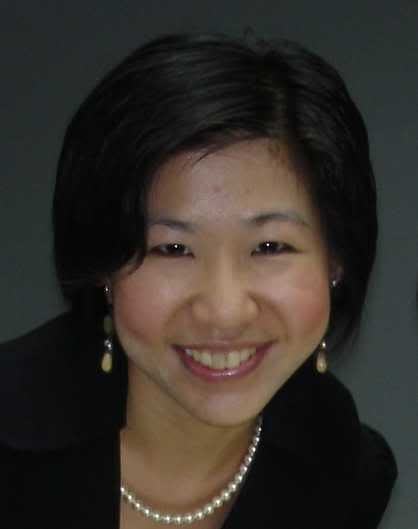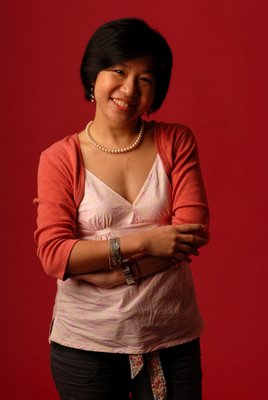'Wal-Mart with Wings'
i luv budget airlines!
Unlike other discount carriers, Ryanair has stayed profitable by charging for every little bit of service
Ryanair Holdings PLC (RYAAY) CEO Michael O'Leary makes no apologies for his penny-pinching. Want to check luggage? You'll pay up to $9.50 per bag for the privilege. Free drinks and snacks? Forget about it. Even a bottle of water will set you back $3.40. It's not just passengers who have to cough it up. Flight crew buy their own uniforms, and staff at Ryanair's spartan Dublin Airport headquarters must supply their own pens. After a customer sued Ryanair for charging $34 for the use of a wheelchair, the company added a 63 cents "wheelchair levy" to every ticket. Says O'Leary: "You want luxury? Go somewhere else."
Southwest Airlines Co. (LUV) inspired O'Leary to bring the first discount carrier to Europe. Now as the best U.S. discounters have fallen on hard times, it's Ryanair that is emerging as the model for how to run a low-cost airline. Southwest, JetBlue Airways (JBLU), AirTran Airways (AAI), and others have seen fuel and expansion costs take a big bite out of profits. At the same time, the majors, after years of struggling, have finally gotten their costs under better control and are often matching or beating the discounters on price.
To compete, U.S. low-fare carriers have taken the opposite approach of Ryanair, adding perks such as leather seats, live television, and business class. "All the low-cost carriers' costs have gotten a little out of control," says Tim Sieber, general manager of The Boyd Group Inc., an Evergreen (Colo.) aviation consultant.
CELL-PHONE MODEL
Not so at Ryanair. The short-haul carrier is making fistfuls of money, even as it slashes fares. Despite a 42% hike in fuel prices, Ryanair's profits for the six months ended Sept. 30 soared 39%, to $422 million, on sales of $1.6 billion.
O'Leary's secret? He thinks like a retailer and charges for absolutely every little thing, except the seat itself. Imagine the seat as akin to a cell phone: It comes free, or nearly free, but its owner winds up spending on all sorts of services. Last year, Ryanair gave away 25% of its seats, a figure O'Leary thinks he can double within five years. In the not-too-distant future, he wants all seats to go for free.
What O'Leary loses in seat revenue, he figures he'll more than make up by turning both his planes and the Ryanair Web site into stores brimming with irresistible goodies, even as he charges for such "perks" as priority boarding and assigned seating.
Outrageous? You bet, but the strategy is working. Although its average fare is $53, compared with $92 for Southwest, Ryanair's net margins are, at 18%, more than double the 7% achieved by Southwest. "Ryanair is Wal-Mart (WMT) with wings," says Nick van den Brul, an aviation analyst at Exane BNP Paribas in London.
O'Leary has plenty of clever new ways to make money. He has turned his planes into giant billboards, displaying ads for such companies as Vodafone Group (VOD), Jaguar, and Hertz. Soon, ads will also stare each passenger in the eye when their seat back trays are up. Once in the air, flight attendants hawk everything from scratch-card games to perfume and digital cameras. Upon arrival at some out-of-the-way airport (you may think you're landing in Paris, but it is actually Beauvais, 43 miles north of the City of Light), Ryanair will sell you a bus or train ticket into town.
Ryanair uses its Web site, with 15 million unique visitors each month, to boost ancillary revenues. The company gets commissions from sales of Hertz rental cars, hotel rooms, ski packages, and travel insurance. For the year ended Mar. 31, such ancillary revenues rose 36%, to $332 million. "Every chance they get, Ryanair tries to squeeze just that little bit of extra margin out of its passengers," says Tim Jones, a principal at London innovation consulting firm Innovaro Ltd.
HIGH ROLLERS
The next frontier for O'Leary is gaming. Ryanair recently added online gambling to its Web site, but O'Leary figures there's more money to be had by offering gaming on his planes once Ryanair launches inflight mobile-phone service next year. "We have no idea how big online gambling will be, but we think it will be significant," he says.
A willingness to take chances has transformed Ryanair from a near-bankrupt basket case back in the 1980s into Europe's most profitable airline. The turnaround came after O'Leary met Southwest founder Herbert D. Kelleher 15 years ago. Kelleher imparted his formula for success over dinner at a Dallas steak house: Fly one type of plane to secondary airports outside major cities. Keep costs low and planes in the air, with quick turnaround times. And forget perks such as frequent-flier miles. O'Leary followed Kelleher's advice, leading Kelleher to dub Ryanair "the best imitation of Southwest Airlines that I have seen."
Ryanair, though, has always been much more than just a Southwest lookalike. For starters, Ryanair sells more than 98% of its tickets online, cutting down on administration costs and travel agent commissions. JetBlue sells 78% of its seats over the Internet, and Southwest just 59%. Ryanair's fleet of Boeing (BA) 737-800s have long ago been stripped down to the bare essentials. Seats don't recline, the better to cram in more passengers. Window shades have been removed, so flight attendants don't have to spend time resetting them between flights. Seat-back pockets have been ditched--one less place for clutter to accumulate.
Clearly, Kelleher's own combative stance against the status quo has provided O'Leary with an effective role model. He once made headlines calling European Union commissioners "communist morons," while dismissing the British Airport Authority as "overcharging rapists." He has dressed as the Pope to promote flights to Rome and has driven a tank to rival easyJet Airline Co.'s headquarters. "We specialize in cheap publicity stunts," he says.
O'Leary is also the master of the surprise move. For years, he has slammed Irish rival Aer Lingus as a "rip-off merchant." But he has since stunned the industry by launching a hostile $1.9 billion bid for the long-haul carrier. Aer Lingus shareholders have until Dec. 4 to accept the offer. If O'Leary wins control of Aer Lingus, he vows to sharply cut costs.
American long-haul discounters aren't likely to go to the extremes Ryanair has gone to sell basic services, but they're paying more attention to Ryanair these days. "They're on the cutting edge," says Tad Hutcheson, vice-president for marketing at AirTran, which recently assigned two marketing staffers to spend a week flying on Ryanair. "Charging for Cokes or snacks, blankets or pillows--I'm not sure Americans are ready for that."












0 Comments:
Post a Comment
<< Home